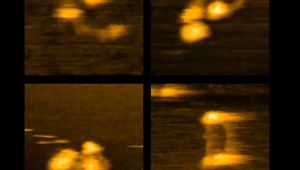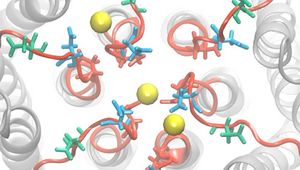The antiviral is also effective against all known coronaviruses and influenza.

A new paper titled: "Ein auf molekularer Ebene entwickeltes Breitspektrum-Anticoronavirus-2-Lektin hemmt die Infektion mit SARS-CoV-2 und MERS-CoV in Vivo" in the prestigious journal, Cell Reports Medicine, describes just how H84T-BanLec is effective against all known human-infecting coronaviruses, including MERS, the original SARS, and SARS-CoV2, including the Omicron variant. H84T-BanLec is extracted from a lectin (a carbohydrate-binding protein) isolated in bananas and molecularly engineered. The protein produces its antiviral activity by binding to mannose-rich glycans, polysaccharides that are found on the surface of viruses but very rarely on normal healthy human cells. Once bound, the virus can no longer infiltrate and infect the cells.
As part of this study - and together with clinical institutes at the universities in Michigan and Hong Kong - a team led by Yoo Jin Oh and Peter Hinterdorfer (Institute of Biophysics at the Johannes Kepler University Linz) conducted comprehensive structural and biophysical single-molecule studies using atomic force microscope imaging to reveal the interactive dynamics and binding properties between H84T-BanLec and the SARS-CoV-2 spike protein, mapping the binding sites with unprecedented resolution. As the SARS-CoV-2 spike protein is highly flexible, strong and diverse, binding allows for maximal binding with H84T-BanLec, thereby producing the resulting antiviral effects. Modeling and experimental data suggest there is a network of oligomannosidic glycans in the SARS-CoV-2 spike protein bound to H84T-Ban-Lec. This strong dynamic binding of H84T-BanLec with the SARS-CoV-2 spike protein explains why it is difficult for a coronavirus to resist the lectin.
Despite their antiviral potential, lectins have been previously avoided as a potential treatment because the proteins could potentially negatively affect the immune system. H84T-BanLec, however, has been modified to negate this effect and animals have not demonstrated any adverse effects. While there are currently several options to treat COVID-19, including remdesivir, paxlovide, and monoclonal antibodies, they vary in effectiveness, side effects, simplicity of use, and many have been shown to be less effective as SARS-CoV2 continues to evolve.
According to the research team, H84T-BanLec is particularly promising because it is effective against all of the coronavirus variants as well as influenza viruses. The researchers hope this treatment can successfully transition from animal testing to human trials. The team believes a nasal spray or drops can be used to prevent or treat coronavirus and influenza infections during flu season or in a pandemic situation. Future plans include exploring the use of H84T-BanLec against cancer since cancer cells, like viruses, also have high surface levels of mannose glycans.











